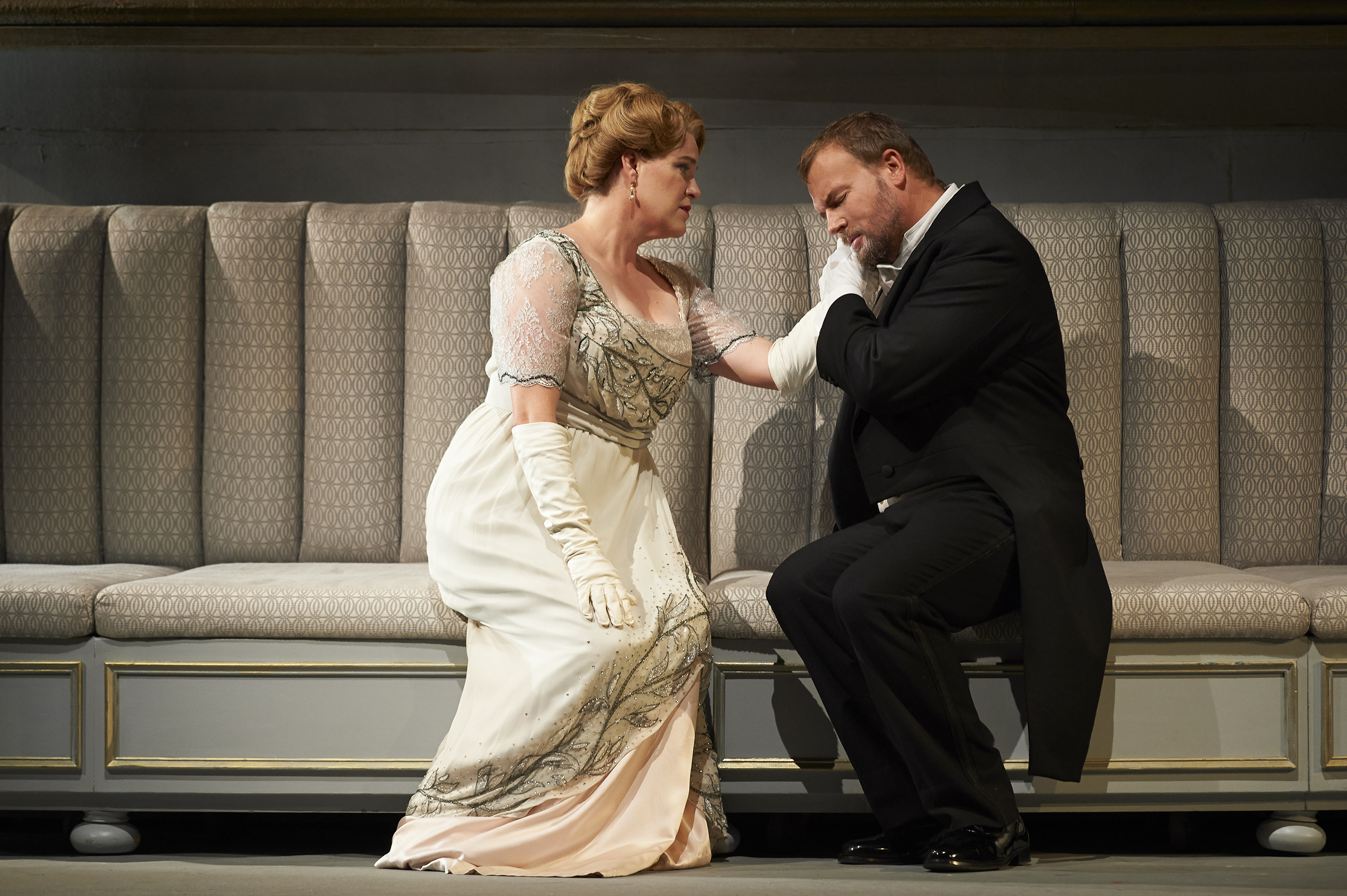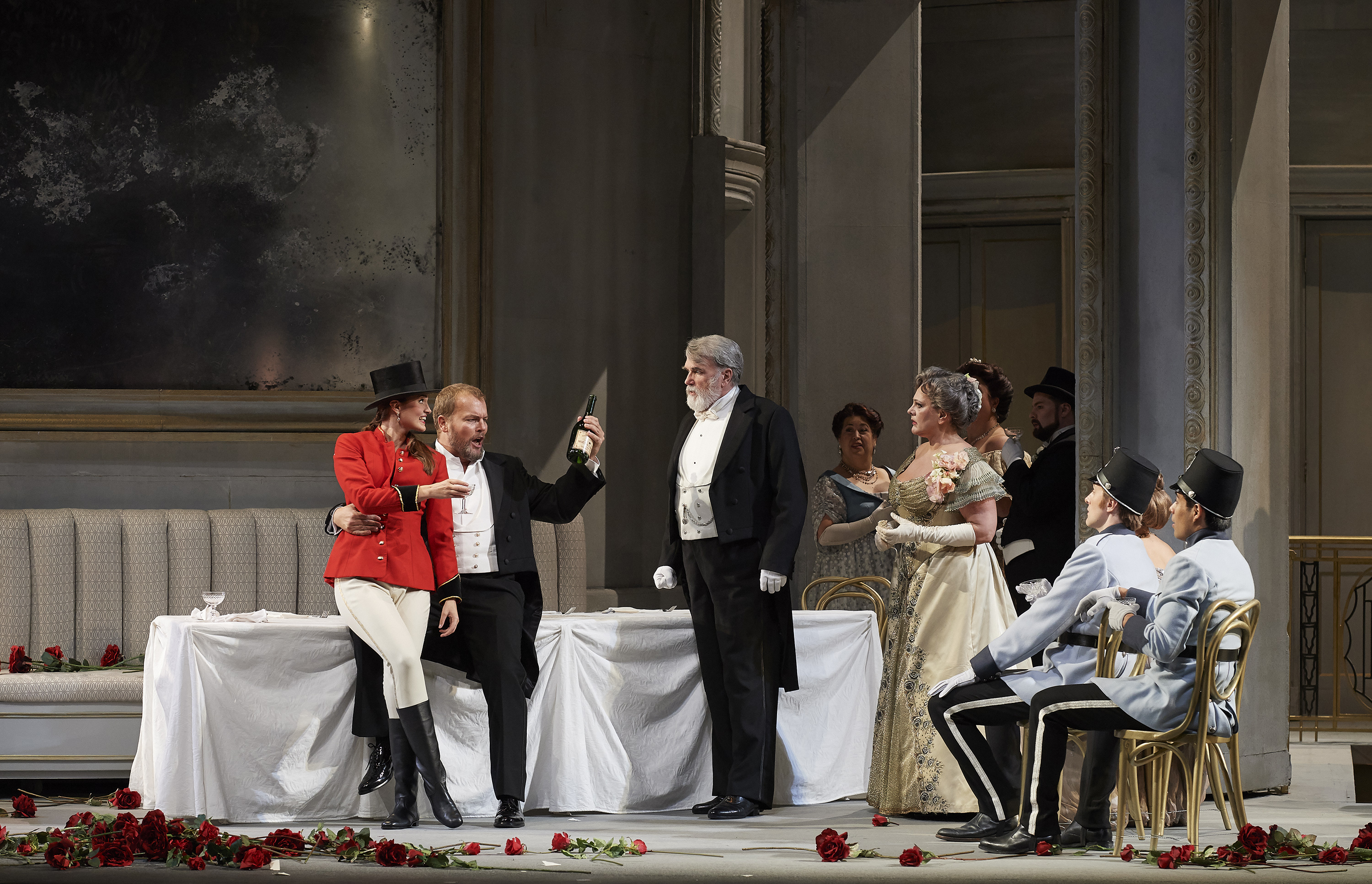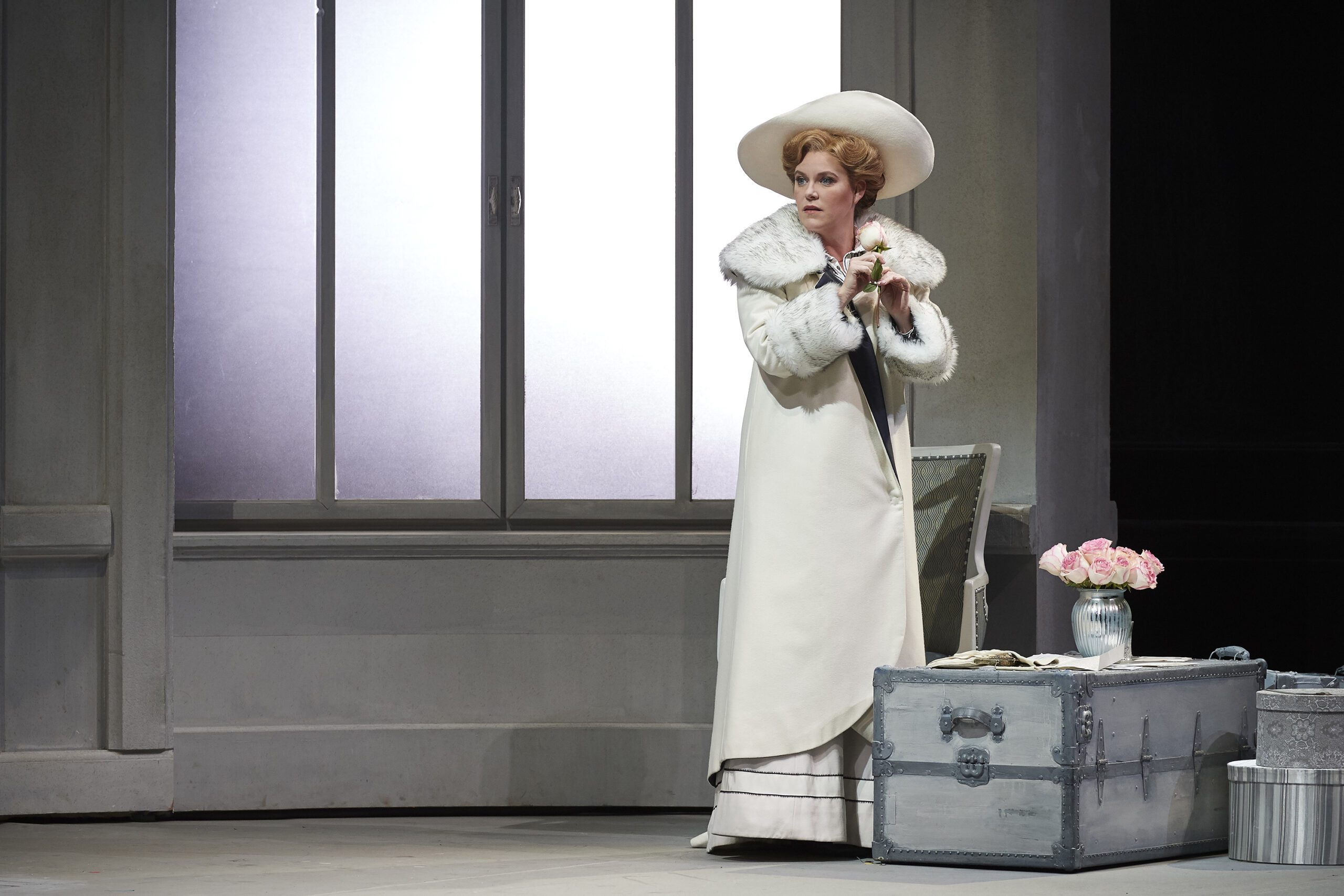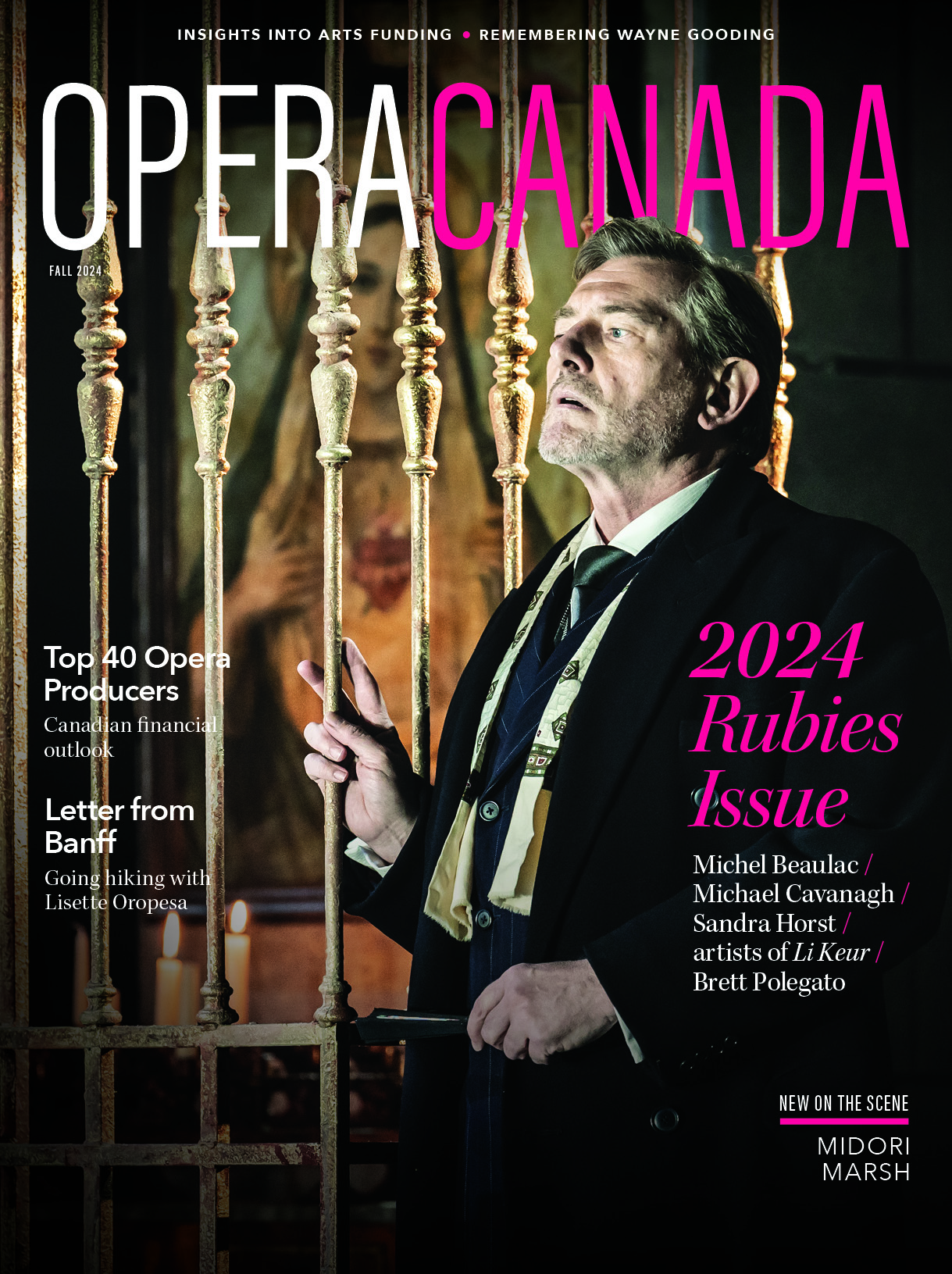Richard Strauss’s Arabella (1933) had its triumphant Canadian premiere last night, opening the Canadian Opera Company’s 17/18 season. It is one of those operas that comes saddled with a ‘reputation,’ often viewed as less than top drawer Strauss; hindered by creaky dramaturgy and an unfinished libretto, due to Hugo von Hoffmansthal’s premature death in 1929. Most of these curmudgeonly cavils were swept away by Tim Albery’s straightforward yet deeply human production, and by some truly outstanding performances.
Albery updated the original 1860s setting to Vienna in 1910, affording set and costume designer Tobias Hoheisel the opportunity to play with Secessionist textile designs, curly wrought iron and slim silhouettes for the gorgeous costumes. Unlike Albery’s notoriously ‘non-kitsch’ 2010 COC Aida, the approach here was almost non-interventionist, with a focus instead on developing character and relationships. With his team of highly experienced singing actors he creates a world in which a desperate, bankrupt family can (almost!) believably pawn off their second daughter as a young man, in order to avoid giving her a proper, expensive introduction to society. One might have wished for a more probing deconstruction of a crumbling pre-WWI Viennese aristocracy, but Albery’s conservatism was probably the right choice for an audience likely seeing this piece for the first time.
Talented performers add to the charm of Arabella
Even more than most title roles, Arabella is central—there is hardly a moment when she is not singing nor onstage. To date, Erin Wall has treated COC patrons to many wonderful portrayals—her Clémence in Saariaho’s Love from afar (2012) was exquisite—but this Arabella tops them all. Her full, silvery, focused tone is perfect for Strauss’s soaring vocal lines. She sang them with absolute security; going far beyond technical mastery to embody a fully rounded young woman on the cusp of a new future, with an unexpected ‘der Richtige’ (‘right man’). Despite societal strictures to ‘marry well,’ you get the feeling that this Arabella has carefully considered her options (rejecting three well-bred, comically immature suitors) and is moving forward with what suits her best.

Erin Wall as Arabella and Tomasz Konieczny as Mandryka in the COC production of Arabella at the Four Seasons Centre for the Performing Arts. Photo: Michael Cooper
The ‘der Richtige’ in question is Mandryka; a Viennese outsider hailing from Croatia, owner of vast forests, and not afraid to wrestle a bear or two. Polish bass-baritone Tomasz Konieczny possesses the physique du rôle and the tireless, bright, soaring tone needed to conquer its punishingly high tessitura. Perhaps more comfortable at the bass end of his range, he did have to cut short a few of the role’s higher excursions, and his German diction didn’t always sound perfectly clear or idiomatic. But this is carping—Konieczny gave his all in an immensely appealing, generous portrayal.
COC 17/18 Artist in Residence Jane Archibald sang her first Zdenka, the ‘sacrificial daughter’ whose love for Matteo (one of Arabella’s hapless suitors) has disastrous repercussions when she tricks him into sleeping with her, pretending to be her now-fiancéed older sister. Zdenka’s big vocal moment occurs in the Act I duet with Arabella “Aber der Richtige,” in which Archibald displayed newfound reserves of power and rich tone.
As Matteo, debuting American tenor Michael Brandenburg affected a hangdog demeanour that grew a little monotonous, and his slightly occluded tone prevented his very secure top range from ringing out clearly. Veteran Canadian baritone John Fanning made a welcome return to the COC; his many years of experience on international stages paying dividends in a highly detailed, yet subtle portrayal of the gambling-addicted Count Waldner.
One of the more bizarre plot elements involves the sudden appearance of The Fiakermilli, mascot at the Act II Coachman’s ball. This high, coloratura showpiece of a role was sung with secure, pointed tone—and not a hint of the dominatrix—by former COC Ensemble soprano Claire de Sévigné.

(l-r) Claire de Sévigné as the Fiakermilli, Tomasz Konieczny as Mandryka, John Fanning as Count Waldner and Gundula Hintz as Adelaide in the COC production of Arabella at the Four Seasons Centre for the Performing Arts. Photo: Michael Cooper
German conductor Patrick Lange seemed to have this score in his blood, boldly leading the COC Orchestra through its complexities and visibly cuing the singers with great care. The playing of Arabella’s ‘staircase entrance’ music was a highlight—it’s hard to imagine anyone who could resist its intense beauty with a dry eye.
It was discouraging to witness the exodus of patrons at intermission, and even more depressingly, before curtain calls. Although Arabella is quasi-standard repertoire in Europe, the COC took a risk by programming it as their season opener. Hopefully those audience members who remained and cheered the ensemble to the rafters will spread the word, encouraging the company to continue its exploration of post-Elektra, post-Salome Richard Strauss.











